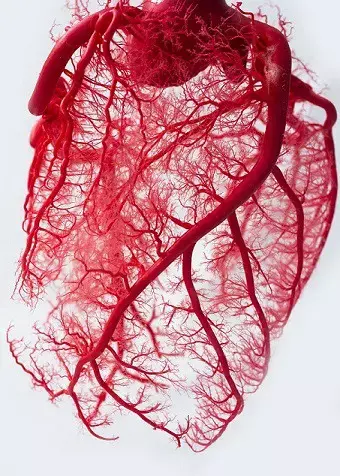- Home
- Medical news & Guidelines
- Anesthesiology
- Cardiology and CTVS
- Critical Care
- Dentistry
- Dermatology
- Diabetes and Endocrinology
- ENT
- Gastroenterology
- Medicine
- Nephrology
- Neurology
- Obstretics-Gynaecology
- Oncology
- Ophthalmology
- Orthopaedics
- Pediatrics-Neonatology
- Psychiatry
- Pulmonology
- Radiology
- Surgery
- Urology
- Laboratory Medicine
- Diet
- Nursing
- Paramedical
- Physiotherapy
- Health news
- Fact Check
- Bone Health Fact Check
- Brain Health Fact Check
- Cancer Related Fact Check
- Child Care Fact Check
- Dental and oral health fact check
- Diabetes and metabolic health fact check
- Diet and Nutrition Fact Check
- Eye and ENT Care Fact Check
- Fitness fact check
- Gut health fact check
- Heart health fact check
- Kidney health fact check
- Medical education fact check
- Men's health fact check
- Respiratory fact check
- Skin and hair care fact check
- Vaccine and Immunization fact check
- Women's health fact check
- AYUSH
- State News
- Andaman and Nicobar Islands
- Andhra Pradesh
- Arunachal Pradesh
- Assam
- Bihar
- Chandigarh
- Chattisgarh
- Dadra and Nagar Haveli
- Daman and Diu
- Delhi
- Goa
- Gujarat
- Haryana
- Himachal Pradesh
- Jammu & Kashmir
- Jharkhand
- Karnataka
- Kerala
- Ladakh
- Lakshadweep
- Madhya Pradesh
- Maharashtra
- Manipur
- Meghalaya
- Mizoram
- Nagaland
- Odisha
- Puducherry
- Punjab
- Rajasthan
- Sikkim
- Tamil Nadu
- Telangana
- Tripura
- Uttar Pradesh
- Uttrakhand
- West Bengal
- Medical Education
- Industry
TMT has limited sensitivity to detect Coronary microvascular disease, finds study

Coronary microvascular disease (CMD) is associated with increased morbidity and mortality even in the absence of flow-limiting epicardial disease. Coronary microvascular disease (CMD) is assessed by direct interrogation (invasive or noninvasive) of coronary microvascular function. Cardiac positron emission tomography (PET) is the non invasive approach for the evaluation of CMD. However, role of TMT in CMD is less studied.
Diana M. Lopez et.al, conducted this study to evaluate sensitivity and specificity of TMT in the diagnosis of CMD. This is a retrospective study done in patients who underwent TMT and PET at Boston, USA. A total of 249 patients were included. Among these 35% tested positive for TMT, 42% were negative and 23% were inconclusive. CFR was reduced (<2) in 98 (39.4%) patients and preserved in 151 (60.6%) patients.
Patients were followed for the occurrence of a first major adverse event, defined as a composite of death or hospitalization for nonfatal MI or heart failure.
Key findings of the study are
1) The sensitivity and specificity of a positive TMT to detect CMD were 34.7% and 64.9% respectively.
2) The specificity of a positive TMT to detect CMD increased to 86.8% when only classifying studies with ischemic electrocardiogram changes that lasted at least 1 minute into recovery as positive, although at a cost of lower sensitivity
3) Over a median follow-up of 6.9 years, 30patients met the composite endpoint, including 13 with CMD. In patients with CMD, TMT result was not associated with the composite endpoint.
Authors concluded that TMT has limited sensitivity to detect CMD. However, a positive TMT with ischemic changes that persist at least 1 minute into recovery in the absence of obstructive CAD should raise suspicion for the presence of CMD given a high specificity.
Source: JACC Cardiovasc Imaging.
MBBS, M. D. Respiratory Medicine
Dr Sravan Kumar V, completed his M. B. B. S from SRMC, Nandyal and M. D. in Respiratory Medicine from the JSS Medical College, Mysore. After completing MD. he worked as Senior resident in Kasturba Hospital, Manipal. He is actively involved in various research activities of the department. Currently he is working as senior resident in Mallareddy medical college for women, Hyderabad. He can be contacted at editorial@medicaldialogues.in.
Dr Kamal Kant Kohli-MBBS, DTCD- a chest specialist with more than 30 years of practice and a flair for writing clinical articles, Dr Kamal Kant Kohli joined Medical Dialogues as a Chief Editor of Medical News. Besides writing articles, as an editor, he proofreads and verifies all the medical content published on Medical Dialogues including those coming from journals, studies,medical conferences,guidelines etc. Email: drkohli@medicaldialogues.in. Contact no. 011-43720751


